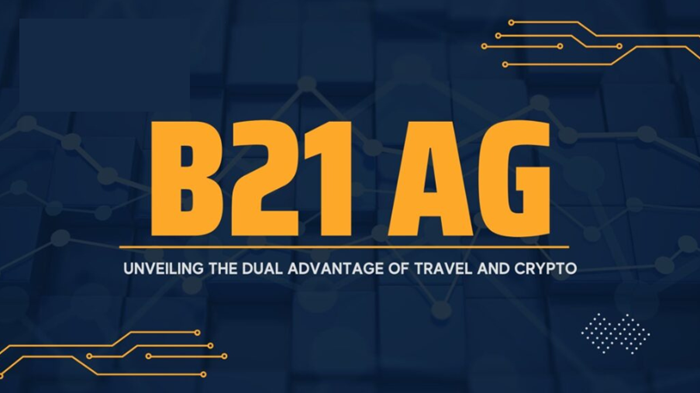We’re glad you’re here on our blog in the USA about “Crypto Wallet Trends: Analysis and Security Tips”! You’ve probably heard of crypto wallets if you’re considering investing in cryptocurrencies. However, what are they really, and why are they crucial for the protection of your digital assets?
Simply put, a crypto wallet is a piece of software that enables you to transfer, receive, and securely store digital currencies like Bitcoin, Ethereum, and others. These wallets facilitate transactions and guarantee the security of your money by utilising a combination of public and private keys. The need for safe and dependable cryptocurrency wallets is rising along with the recognition of cryptocurrencies.
It’s vital to comprehend the significance of crypto wallet security since with tremendous power comes great responsibility. Because cryptocurrencies are decentralised, there is no central authority to safeguard your funds or undo illicit transactions. This means that protecting your cryptocurrency wallet is crucial if you want to avoid losing or having your money stolen. We will examine the many forms of cryptocurrency wallets, examine current developments in the USA, go over best practises for protecting your wallet, and offer advice on how to steer clear of typical hazards and difficulties in this blog. So let’s get going!
The USA’s Crypto Wallet Trends
A constantly expanding number of people and businesses use cryptocurrency wallets to store and manage their digital assets, making the USA a global leader in the use of cryptocurrencies. More consumers are turning to this technology for secure and convenient management of their bitcoins, which has significantly increased the use of cryptocurrency wallets in recent years.
There are various choices when it comes to the types of cryptocurrency wallets that are used in the USA. Trezor and Ledger hardware wallets, which offer a high level of protection, continue to be a popular option. Exodus and Coinbase are two popular software wallets that provide consumers greater ease.
New trends in the crypto wallet market are developing as technology keeps developing. Multi-currency wallets, for instance, are becoming more and more popular as they enable users to store and manage various cryptocurrencies in a single wallet. Non-custodial wallets are also growing in popularity since they provide users total control over their private keys.
The use of cryptocurrency wallets is also being impacted by regulatory changes in the USA. For instance, the Financial Crimes Enforcement Network (FinCEN) has suggested new regulations that would oblige providers of cryptocurrency wallets to gather and report user data. Such changes emphasise how crucial it is to keep abreast of the regulatory framework governing crypto wallets in the USA.
Cryptocurrency Wallet Types and Their Security Options
There are various types of cryptocurrency wallets, each with special features and levels of protection. The ultimate level of protection is provided by hardware wallets, commonly referred to as cold wallets. These actual devices keep your private keys offline. They are a preferred option among long-term investors since they are immune to malware and cyber threats.
Digital wallets that can be accessed through desktop or mobile devices are software wallets, on the other hand. Despite being more practical than hardware wallets, they are less secure because to their internet connection. Exodus, Coinbase, and MyEtherWallet are a few examples of well-known software wallets.
A sort of cold wallet known as a paper wallet includes printing your private keys on a piece of paper, which is then kept in a safe place. Paper wallets can be easily damaged or lost, despite being inexpensive and simple to make.
Another popular choice is mobile wallets, which help users manage their cryptocurrency while on the road. Despite the convenience they provide, due to the possibility of malware or theft, they might not be as safe as hardware or paper wallets.
The final decision about a crypto wallet depends on the requirements and risk tolerance of the user. Understanding the security characteristics of each form of wallet is crucial, as is taking the necessary precautions to safeguard your private keys and digital assets.
Top Tips for Protecting Cryptocurrency Wallets
To avoid the loss or theft of your digital assets, it’s essential to secure your crypto wallet. One of the best ways to keep your wallet safe is to select a reliable wallet provider with a solid security reputation. In order to provide an additional layer of security, it’s crucial to employ multi-factor authentication, which includes a password and biometric verification.
To keep your wallet up to current with the newest security features and bug fixes, regular software updates are also required. The keys to your wallet should also be safely stored, preferably offline or in a secure cloud storage service.
Avoiding insecure gadgets and public Wi-Fi networks is also essential because they can put your wallet at risk of security risks. You may dramatically lower the likelihood that your cryptocurrency wallet will be compromised by adhering to these recommended practises, giving you piece of mind knowing that your digital assets are secure.
Risks and Difficulties of Cryptocurrency Wallets
Although crypto wallets give you a safe way to manage your digital assets, using them comes with a number of hazards and difficulties. Users of crypto wallets frequently run the risk of cybersecurity concerns including hacking and phishing attempts. Hackers may try to access your wallet without authorization by taking advantage of flaws in the wallet software or by employing deceptive social engineering techniques to get you to divulge your private keys.
Human error poses a serious risk as well because losing wallet keys or money due to careless password administration or storage might have disastrous results. The use and security of cryptocurrency wallets may also be affected by regulatory concerns and difficulties in the USA, such as modifications to taxation and reporting requirements. It’s crucial to be aware of these risks and take the necessary precautions to reduce them, such as utilising trusted wallet providers and adhering to recommended practises for wallet security.
USA Case Studies of Crypto Wallet Security Breaches
Recent years have seen an increase in the frequency of crypto wallet security breaches, including numerous high-profile occurrences in the USA. One instance is the 2018 breach of Coincheck, a well-known exchange site, which cost over $500 million in digital assets. The vulnerability in the exchange’s security protocols, which led to the compromise, emphasises the significance of routine security assessments and updates.
The 2020 Twitter attack, which resulted in the compromising of multiple well-known accounts and the propagation of a Bitcoin hoax, is another illustration. A social engineering effort intended to deceive Twitter employees into disclosing their account access credentials was what led to the hack.
These hacks serve as a reminder of the value of robust security precautions, including the use of reliable wallet providers, activating two-factor authentication, and avoiding dubious emails and links. Users can lower the likelihood that their digital assets will be compromised by adhering to best practises for wallet security and being cautious against potential threats.
Conclusion
This article has examined the value of protecting cryptocurrency wallets and has outlined a number of trends, dangers, and recommended practises related to their use in the USA. We talked about how popular wallets including hardware, software, paper, and mobile wallets are growing in popularity as well as how they differ from one another in terms of security. We also discussed the risks and difficulties related to cryptocurrency wallets, such as regulatory and cybersecurity problems.
It is critical to adhere to recommended practises for securing your crypto wallet, such as picking a trustworthy wallet provider, implementing multi-factor authentication, updating your wallet software frequently, and safely storing and backing up your wallet keys, in order to maintain the security of your digital assets.
It is likely that trends in crypto wallets and security issues will shift as cryptocurrency use expands and changes. Users must be knowledgeable and proactive in preserving their digital assets as a result.
As a final recommendation, we implore readers to prioritise crypto wallet security and implement suitable safeguards for their digital assets. Users may reduce risks and safely and securely take advantage of the benefits of crypto wallets by adhering to best practises and exercising caution.
Read More You May Like:














Post Comment